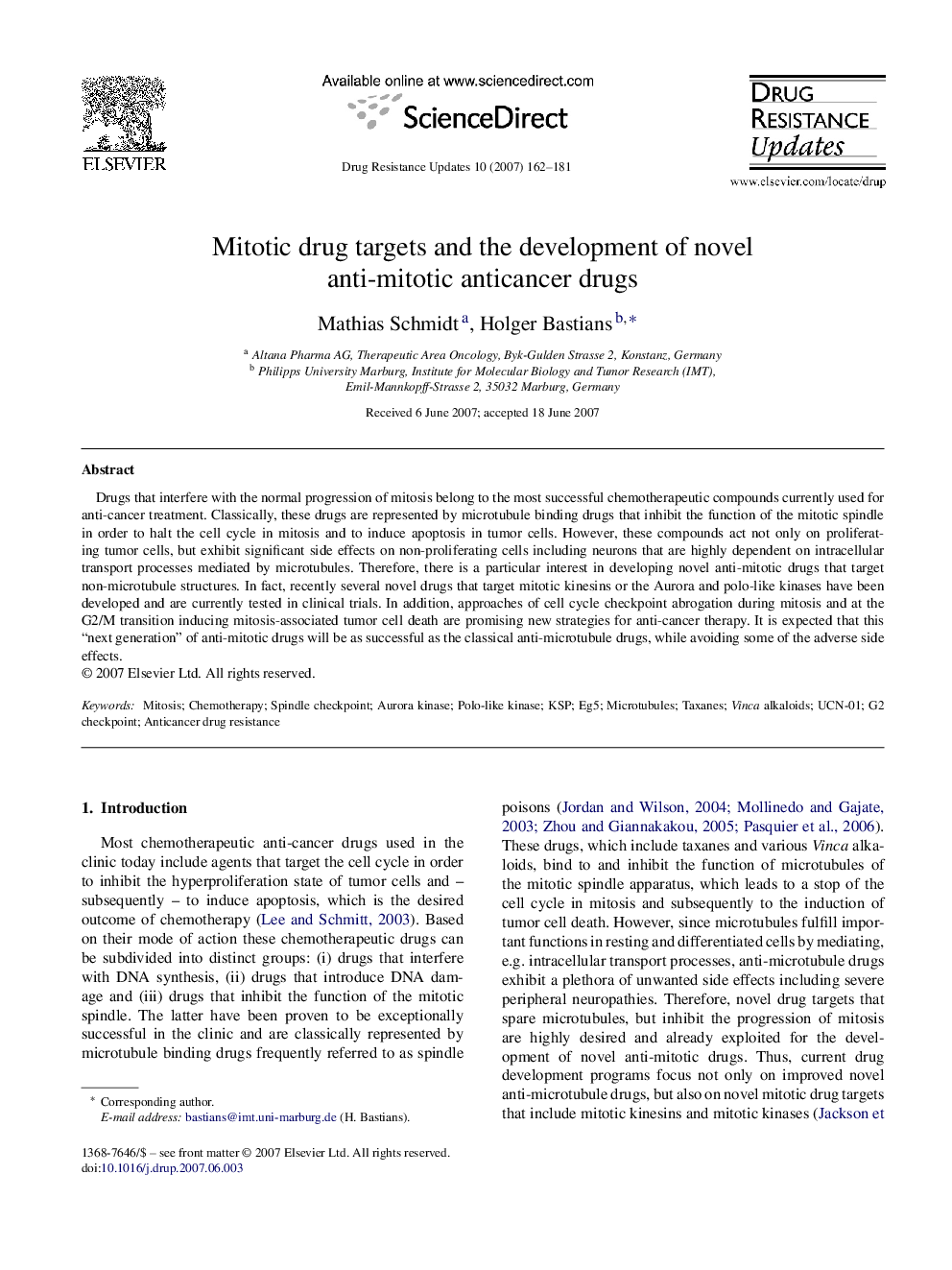| Article ID | Journal | Published Year | Pages | File Type |
|---|---|---|---|---|
| 2120536 | Drug Resistance Updates | 2007 | 20 Pages |
Drugs that interfere with the normal progression of mitosis belong to the most successful chemotherapeutic compounds currently used for anti-cancer treatment. Classically, these drugs are represented by microtubule binding drugs that inhibit the function of the mitotic spindle in order to halt the cell cycle in mitosis and to induce apoptosis in tumor cells. However, these compounds act not only on proliferating tumor cells, but exhibit significant side effects on non-proliferating cells including neurons that are highly dependent on intracellular transport processes mediated by microtubules. Therefore, there is a particular interest in developing novel anti-mitotic drugs that target non-microtubule structures. In fact, recently several novel drugs that target mitotic kinesins or the Aurora and polo-like kinases have been developed and are currently tested in clinical trials. In addition, approaches of cell cycle checkpoint abrogation during mitosis and at the G2/M transition inducing mitosis-associated tumor cell death are promising new strategies for anti-cancer therapy. It is expected that this “next generation” of anti-mitotic drugs will be as successful as the classical anti-microtubule drugs, while avoiding some of the adverse side effects.
